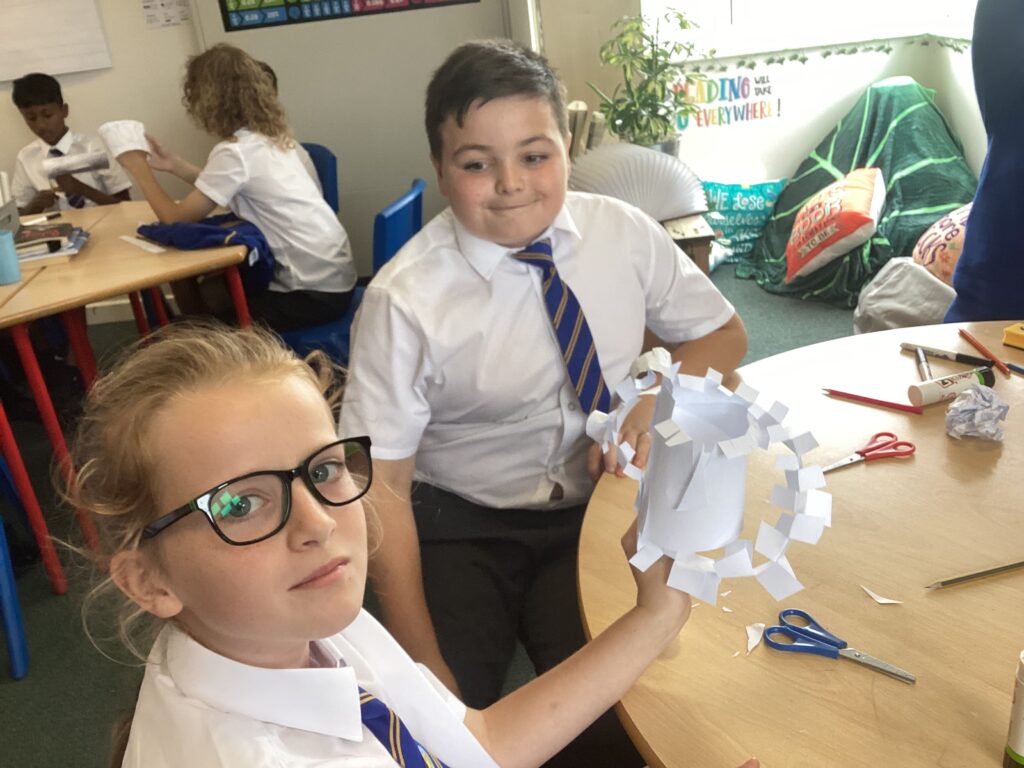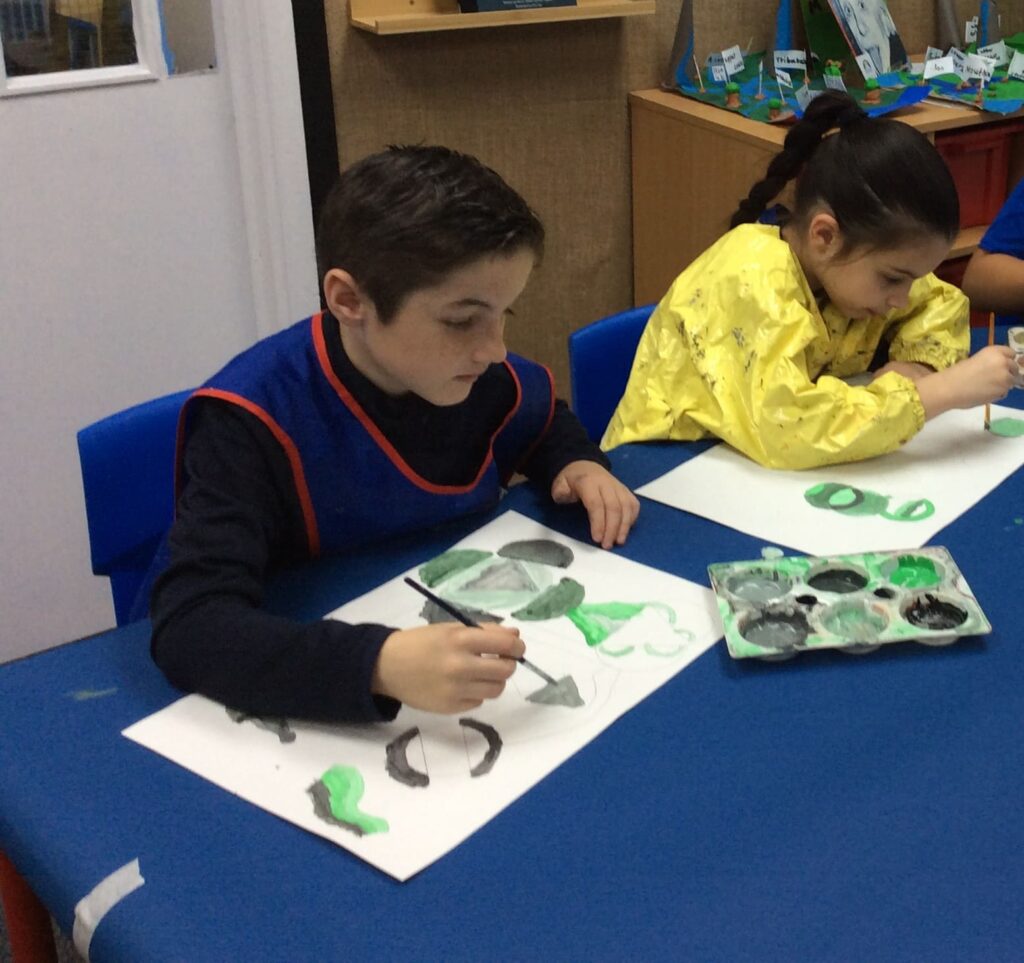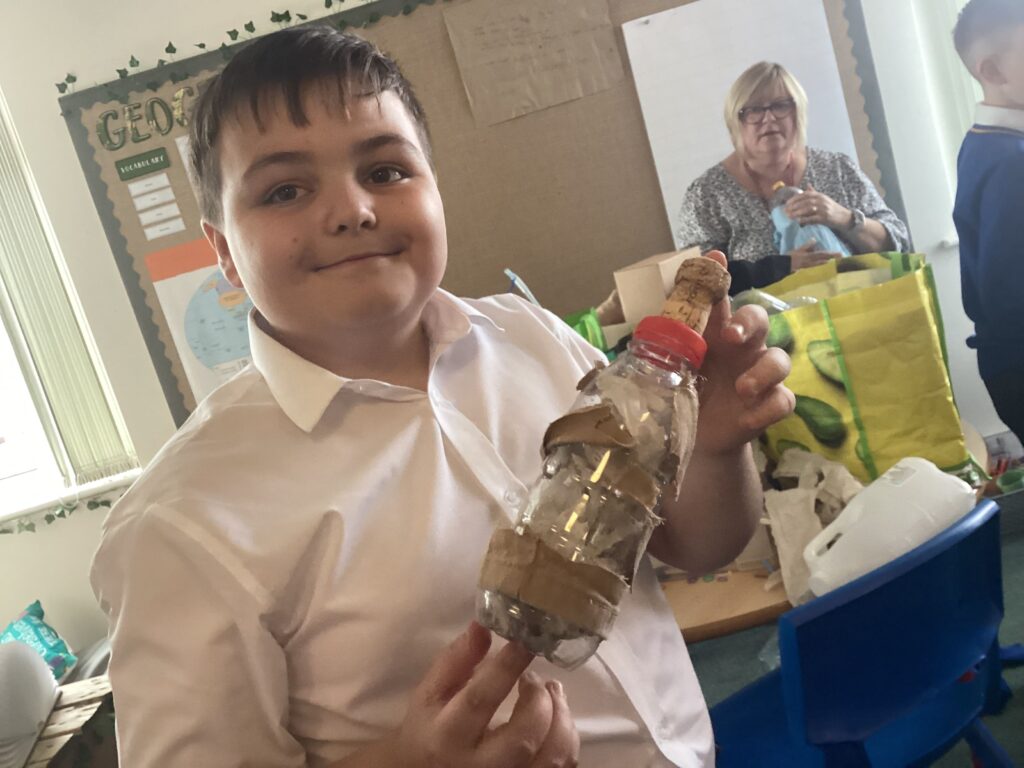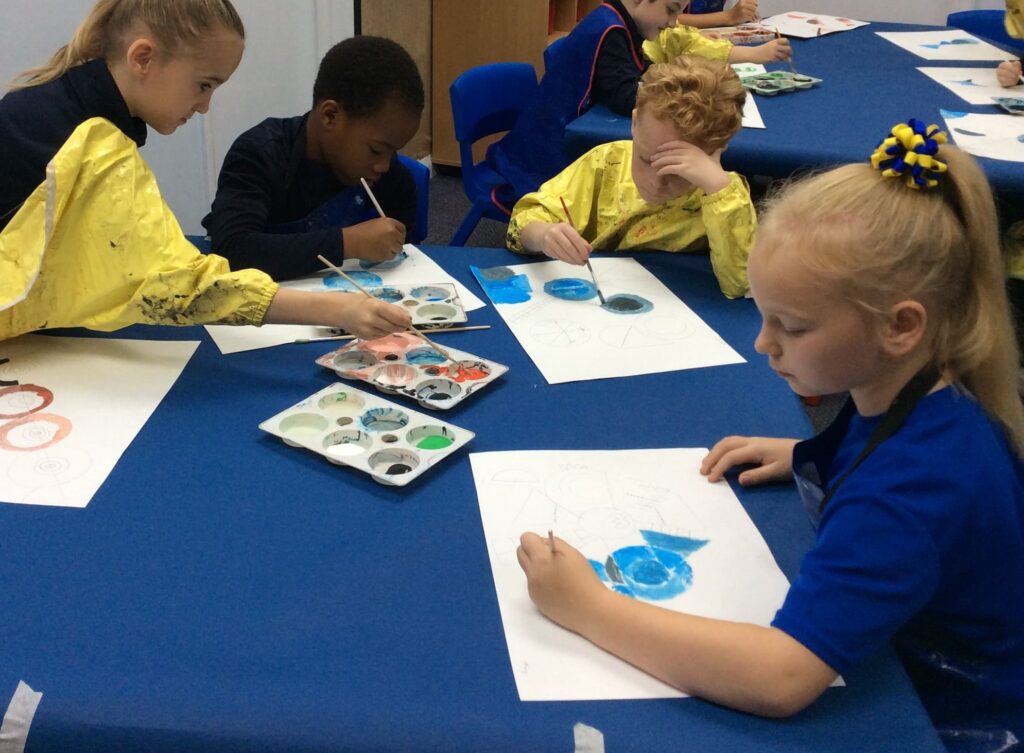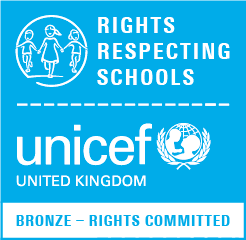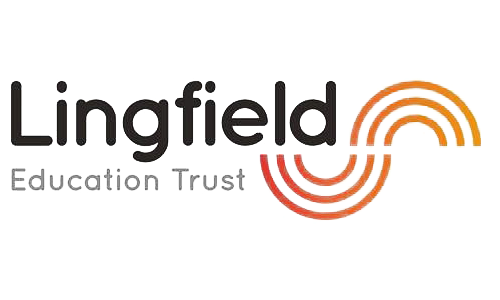“Every artist was first an amateur.” – Ralph Waldo Emerson
At Marton Manor Primary School, we envision children who leave our school not just as skilled artists, but as individuals who have developed a deep and lasting appreciation for the transformative power of art in human society. Throughout their time at school, our students will explore art in all its diversity and richness, recognizing how it shapes cultures, reflects historical contexts, and influences the world around us. They will understand art as a universal language that transcends time, geography, and individual differences, enabling them to engage with and respond to the world in creative, thoughtful, and meaningful ways.
We aim to nurture children who are not only technically proficient but also confident in their creative expression, using art to communicate ideas, emotions, and perspectives. Our curriculum fosters a holistic understanding of art that links the practical aspects of making with the theoretical knowledge of its history, significance, and cultural relevance. Students will leave our school with the ability to analyse and critique art, recognizing its value and purpose across different contexts and forms.
By the time they leave Marton Manor Primary, children will be equipped with the skills, knowledge, and mindset to see art as an integral part of life. They will understand its role in shaping societies, challenging perceptions, and inspiring change. Their journey through art will have instilled in them a lifelong curiosity and respect for creative practices, enhancing their appreciation of the world and their ability to contribute to it in their own unique ways.
Our intent for Art at Marton Manor
- We believe that art is central to human civilisation and plays a vital role in enriching every aspect of life, fostering creativity, expression, and cultural understanding.
- Our curriculum exceeds National Curriculum requirements, providing a comprehensive and inspiring exploration of art that encourages deep engagement and personal growth.
- We are committed to developing three essential areas of knowledge—Practical, Theoretical, and Disciplinary Knowledge—ensuring a well-rounded and progressive approach to art education.
- Through the acquisition of Practical Knowledge, we aim to equip students with the technical skills needed to explore and excel in diverse artistic disciplines, including painting, mixed media, and sculpture.
- We strive to deepen students’ understanding of art’s past, present, and future, encouraging connections between historical, cultural, and contemporary artistic practices through Theoretical Knowledge.
- Our curriculum fosters Disciplinary Knowledge, empowering students to interpret, discuss, and critically engage with art, building their ability to appreciate and evaluate artworks across a variety of contexts.
- We are committed to broadening students’ cultural horizons by introducing them to diverse artists, movements, and art traditions, fostering a deeper understanding of art’s significance across different cultures and periods.
- Our Creative Response blocks encourage students to apply their knowledge independently and imaginatively, fostering creative confidence and the ability to produce unique and meaningful artwork.
We follow the National Curriculum at Marton Manor
Key stage 1
Pupils are taught:
- To use a range of materials creatively to design and make products
- To use drawing, painting and sculpture to develop and share their ideas, experiences
- and imagination
- To develop a wide range of art and design techniques in using colour, pattern, texture,
- line, shape, form and space
- About the work of a range of artists, craft makers and designers, describing the
- differences and similarities between different practices and disciplines, and making
- links to their own work.
Key stage 2
Pupils should be taught to develop their techniques, including their control and their use of materials, with creativity, experimentation and an increasing awareness of different kinds of art, craft and design.
Pupils are taught:
- To create sketch books to record their observations and use them to review and revisit
- ideas
- To improve their mastery of art and design techniques, including drawing, painting and
- sculpture with a range of materials (for example, pencil, charcoal, paint, clay)
- About great artists, architects and designers in history
How the Art Curriculum is designed at Marton Manor
At Marton Manor Primary School, our Art Curriculum is designed to inspire creativity, develop practical skills, and deepen understanding of artistic concepts. Rooted in practical, theoretical, and disciplinary knowledge, our curriculum provides a rich and structured approach to art education.
Below, you will find an overview of our curriculum, outlining the key substantive content and the knowledge that underpins our approach to teaching art.





